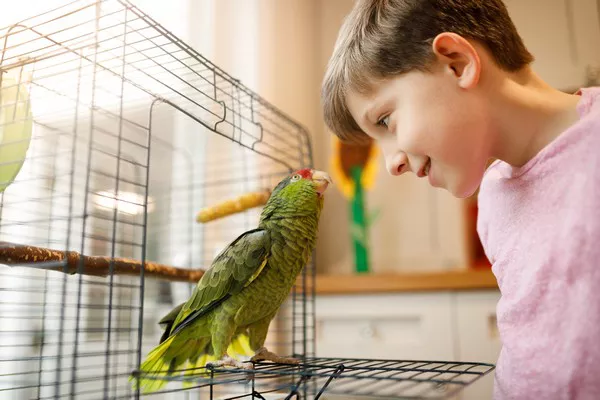Foxhounds, renowned for their keen hunting abilities and strong stamina, have earned a special place in the world of hunting dogs. Whether you’re considering adopting one or simply intrigued by their behavior, understanding how much these dogs bark is an important factor to consider. In this article, we will explore the barking tendencies of Foxhounds, delve into the breed’s vocalization habits, and examine how these dogs communicate. We’ll also look at how training, environment, and breed-specific traits influence the barking behavior of Foxhounds.
Overview of Foxhounds
Before discussing their barking habits, it’s important to first understand the general characteristics of Foxhounds. Foxhounds belong to a category of breeds known as scent hounds. These dogs were originally bred for hunting foxes, and their skills at tracking scents over long distances are unparalleled. While there are two main types of Foxhounds—American Foxhounds and English Foxhounds—both share similar temperaments and behaviors.
Foxhounds are medium to large-sized dogs, with sleek coats, strong builds, and an innate drive to chase prey. These dogs are known for their endurance and high energy levels, traits that made them exceptional hunting companions. Today, Foxhounds are still used for hunting, though they are also kept as family pets in some households. Their hunting heritage plays a significant role in their behavior, including their vocalizations.
Understanding Dog Barking
Before diving into whether Foxhounds bark a lot, it’s important to first understand why dogs bark in general. Barking is a form of canine communication. Dogs bark to alert others to potential danger, express excitement, request attention, or even simply to release pent-up energy. However, the frequency, intensity, and context of barking can vary greatly from breed to breed and even from dog to dog.
Some breeds are naturally more vocal than others due to their history, instincts, and genetic traits. For instance, herding breeds may bark to control livestock, while terriers often bark to warn of intruders. On the other hand, breeds like the Basenji are known for being exceptionally quiet, and many hounds, including Foxhounds, are known to be more vocal.
Do Foxhounds Bark a Lot?
Foxhounds are not particularly known for being incessant barkers, but they do have specific barking behaviors linked to their breed traits. To answer the question of whether Foxhounds bark a lot, we need to examine their barking in the context of their history, instincts, and communication needs.
1. Foxhounds and Hunting Instincts
Foxhounds were originally bred for hunting, and their vocalizations played a vital role in this process. During a hunt, Foxhounds are often required to vocalize when they pick up a scent trail or catch sight of a fox. This is known as “bay” barking, a deep, loud, and prolonged sound that helps alert hunters to the presence of prey. The baying is distinct from regular barking and is part of the dog’s instinct to communicate with the hunting party.
Because of this hunting background, Foxhounds may bark frequently, but usually only when they sense a scent or are on the trail of a prey animal. These barks are purposeful and are not random or unnecessary. So, in the context of their historical role, Foxhounds do bark often—but usually for a reason tied to their task at hand.
2. Do Foxhounds Bark as Family Pets?
When kept as family pets, Foxhounds are generally not as vocal as they would be during a hunt. However, their instinct to bark is still present, and they may express it in different ways. For example, Foxhounds may bark to alert their owners of unfamiliar sounds, people, or animals. As highly alert dogs, they tend to be cautious and observant of their environment, which might lead them to bark when something new or unusual occurs.
At home, Foxhounds may bark in the following situations:
Alert barking: Foxhounds are natural protectors, so they may bark when someone approaches the house or if they sense an unfamiliar presence nearby. This behavior can be controlled through proper socialization and training.
Attention-seeking barking: Foxhounds, like many dogs, may bark to get attention from their owners, especially when they want to go outside, play, or receive affection.
Excitement barking: Foxhounds are energetic and enthusiastic dogs. When they’re excited—whether it’s about going for a walk, meeting a new person, or playing with a favorite toy—they may bark as an expression of joy.
Boredom or frustration barking: Foxhounds are active dogs that require a lot of physical and mental stimulation. If they do not receive enough exercise or engagement, they may bark out of frustration. Regular walks, mental challenges, and playtime can help mitigate this behavior.
3. Comparison with Other Hound Breeds
When compared to other hound breeds, Foxhounds are generally less likely to bark constantly. Breeds like Beagles or Basset Hounds, for example, are also scent hounds, but they tend to have a more vocal nature. Foxhounds are typically more reserved when it comes to unnecessary barking, but they can still become noisy in the right conditions, especially if they feel the need to alert their owners to something.
The difference in vocalization levels often depends on the individual dog’s temperament, as well as its level of socialization, training, and environmental factors. For instance, a Foxhound raised in a home with other dogs and plenty of interaction with family members may be less likely to bark excessively than a Foxhound left alone in the yard for long periods.
4. Training and Control of Barking
One of the key factors in managing a Foxhound’s barking behavior is training. Although barking is a natural instinct for dogs, including Foxhounds, it can be reduced or managed through consistent training and positive reinforcement techniques.
Obedience training: Teaching your Foxhound basic commands like “sit,” “stay,” and “quiet” can help reduce unnecessary barking. Rewarding your dog when it stops barking on command can reinforce the behavior you want to see.
Socialization: Proper socialization with other dogs, animals, and people can help your Foxhound become more comfortable in various situations, reducing its tendency to bark out of fear or uncertainty.
Exercise and mental stimulation: Foxhounds are high-energy dogs that require a lot of exercise. Regular physical activity can help burn off excess energy and prevent boredom-induced barking. Mental stimulation, such as puzzle toys, scent games, and obedience training, can also keep their minds engaged.
Avoiding reinforcement of bad behavior: If a Foxhound barks excessively for attention, it’s important not to reward the barking behavior with attention or treats. Instead, wait for the dog to stop barking, and then reward it for being quiet.
Environmental adjustments: If your Foxhound barks at passing cars or people, you can make environmental adjustments such as using barriers or setting up the dog’s living area in a quieter part of the house.
5. Foxhounds and Barking as a Communication Tool
It’s important to remember that barking is just one of many ways Foxhounds communicate. These dogs also express themselves through body language, eye contact, tail position, and even facial expressions. For example, a Foxhound might bark while wagging its tail, indicating excitement or happiness. On the other hand, if a Foxhound stands stiffly with its ears erect and barks sharply, it might be signaling that something needs attention or investigation.
Understanding your Foxhound’s unique communication style can help you differentiate between a bark that demands immediate attention and one that simply reflects the dog’s excitement or curiosity.
Other Factors Influencing Barking in Foxhounds
While training and socialization play a significant role in controlling barking, there are several other factors that can influence how much a Foxhound barks. These include:
Age: Puppies are more likely to bark out of excitement, fear, or curiosity, while older Foxhounds may bark less frequently as they become more settled.
Health: A Foxhound that is feeling unwell or in pain may bark more frequently as a form of distress. If your dog’s barking habits change suddenly or seem abnormal, it’s always a good idea to consult with a veterinarian.
Living environment: Dogs that live in quieter, less stimulating environments may be more prone to barking out of boredom, while those in active homes with plenty of stimulation may bark less. Rural Foxhounds might bark at wildlife or farm animals, while urban Foxhounds may bark at pedestrians or vehicles.
Companionship: Foxhounds are known to be social dogs that enjoy the company of others, whether human or canine. A Foxhound may bark more if it feels lonely or isolated, but having another dog or human companion can help keep the barking to a minimum.
Conclusion
In summary, while Foxhounds do bark, they are not typically considered excessive barkers when compared to some other breeds. Their barking is often linked to their natural hunting instincts and can serve various purposes, from alerting to an intruder to expressing excitement or seeking attention. While they may be more vocal during a hunt, Foxhounds in the home environment tend to be moderate barkers, with their behavior being influenced by their training, exercise, and socialization.
If you are considering adding a Foxhound to your family, it’s essential to provide them with enough physical activity, mental stimulation, and proper training to manage their barking behavior effectively. By understanding the breed’s history, instincts, and communication needs, you can create a harmonious environment where your Foxhound feels content without unnecessary barking.
Related Topics:



















